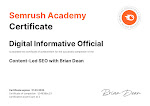What is Accounts and Finance? How to Become a Successful Accountant for E-commerce Brands and Software Houses
What is Accounts and Finance? How to Become a Successful Accountant for E-commerce Brands and Software Houses
Accounts and finance are pivotal elements in the operational framework of any business, playing a crucial role in a company's economic growth and stability.
Accounting is the systematic process of recording, analyzing, and interpreting financial information, while finance focuses more on managing, creating, and studying money and investments.
Key Components of Accounting
- Financial Accounting: Involves the preparation of financial statements for external stakeholders.
- Management Accounting: Focuses on internal analysis for decision-making.
- Auditing: Examines the accuracy of financial records.
- Tax Accounting: Specializes in preparing tax returns and tax planning.
Fundamentals of Finance
- Investment Analysis: The study of how to invest resources for the best return.
- Corporate Finance: Managing a company’s capital structure and funding operations.
- Personal Finance: Involves planning and managing personal financial activities, like income generation, saving, investing, and protection.
The Role of an Accountant in E-commerce and Software Houses The evolving landscape of e-commerce and software industries demands accountants who are not just skilled in traditional accounting practices, but are also tech-savvy and adaptive to the digital environment. These professionals are responsible for:
- Budgeting and Forecasting: Predicting financial trends and allocating resources accordingly.
- Financial Reporting: Providing accurate reports for stakeholders to make informed decisions.
- Compliance and Risk Management: Ensuring adherence to financial laws and minimizing risks.
Skills Required to Excel in Accounting for E-commerce and Software Houses
- Technological Proficiency: Knowledge of accounting software and digital tools.
- Analytical Skills: Ability to interpret complex financial data.
- Strategic Thinking: Planning financial strategies aligned with business goals.
- Communication Skills: Effectively conveying financial information to non-financial colleagues.
Educational Path to Becoming an Accountant
- Bachelor’s Degree: Start with a degree in accounting, finance, or a related field.
- Certifications: Consider obtaining CPA (Certified Public Accountant) or CMA (Certified Management Accountant) certifications.
- Continued Learning: Stay updated with the latest accounting software and financial regulations.
Career Opportunities in E-commerce and Software Industries
- Financial Analyst
- Internal Auditor
- Management Accountant
- Chief Financial Officer (CFO) for Tech Startups
Building a Successful Career in Accounting for E-commerce and Software Houses
- Gain Relevant Experience: Internships or junior roles in related industries.
- Network: Build connections with professionals in the e-commerce and software sectors.
- Specialize: Focus on areas like tax strategy for online businesses or financial management for software firms.
Emerging Trends in Accounting for Digital Enterprises
- Automated Accounting Processes: Utilizing AI and machine learning for efficiency.
- Blockchain in Accounting: Revolutionizing how transactions are recorded and verified.
- Data Analytics: Leveraging big data to inform financial decisions.
Conclusion The world of accounts and finance is dynamic and challenging, offering immense opportunities for professionals in e-commerce and software industries. By combining accounting expertise with technological proficiency and continuous learning, one can excel in this field, contributing significantly to the success of digital businesses.






















Post a Comment